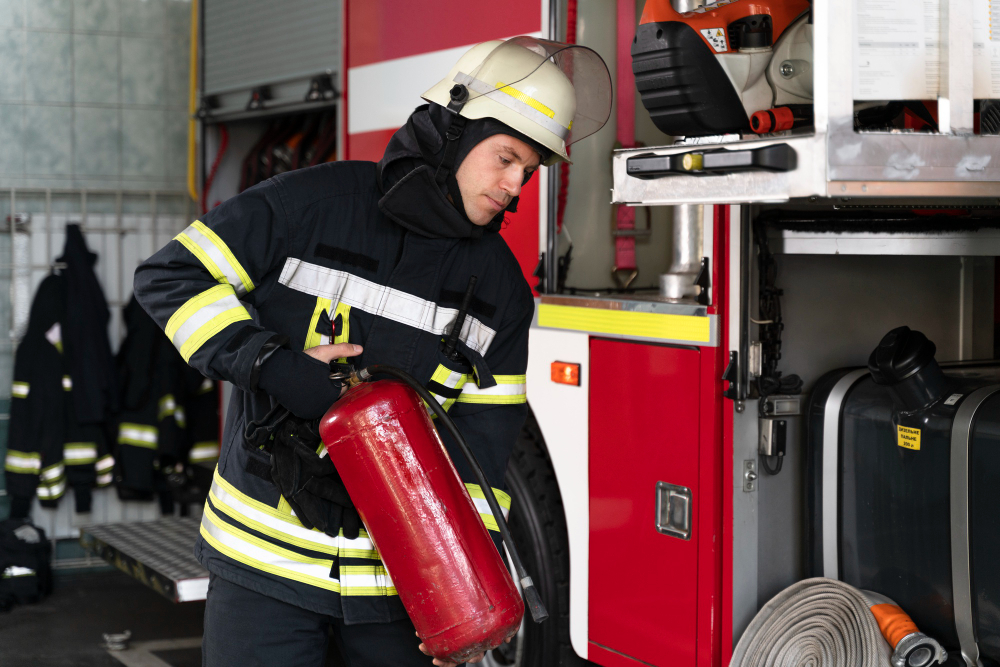
Security guards are traditionally known for protecting property, assets, and people from intrusions and unauthorized access. However, their role extends far beyond the conventional image of static sentinels. One of their most critical yet often underappreciated functions lies in fire detection and prevention.
In modern security frameworks, guards serve as the first line of defense not only against criminal activities but also against life-threatening fire hazards that can lead to catastrophic losses. Their presence, vigilance, and training play a significant role in mitigating fire risks and ensuring quick, effective responses during emergencies.
Early Detection and Routine Fire Safety Monitoring
A well-trained security guard is often the first individual to identify early signs of fire risks. By conducting frequent patrols and inspections, guards can spot issues like overheated electrical panels, obstructed fire exits, flammable material storage violations, or faulty smoke detectors before they escalate.
We implement fire-watch protocols as part of routine site monitoring, ensuring that areas prone to fire hazards are checked regularly. In buildings undergoing maintenance, renovations, or where fire detection systems are temporarily down, guards take on the additional responsibility of manual surveillance, effectively becoming human fire alarms.
Emergency Response and Initial Fire Control
When a fire breaks out, the initial moments are crucial. Security guards are trained to respond immediately, even before emergency services arrive. Their duties in such instances include:
- Activating manual fire alarms and calling the fire department
- Assisting in evacuation procedures
- Operating fire extinguishers for small, manageable fires
- Directing emergency personnel to the fire location
- Ensuring no one re-enters the premises until declared safe
Their familiarity with the layout of the building, evacuation plans, and fire control systems enables them to react swiftly, minimizing casualties and property damage.
Evacuation Assistance and Crowd Management
Panic during a fire emergency can often lead to chaos and injury. Security guards play a pivotal role in calming occupants, providing clear instructions, and directing people to safety using established evacuation protocols. Their communication skills and authoritative presence ensure order, preventing stampedes or bottlenecks at exits.
We ensure our guards receive periodic training in emergency evacuation drills. Their ability to guide people with calmness and authority during high-stress situations is indispensable. Special attention is given to helping vulnerable individuals such as children, elderly, or disabled persons exit safely.
Maintenance of Fire Safety Equipment
Security teams are frequently tasked with checking the status and accessibility of firefighting equipment like fire extinguishers, hose reels, sprinkler valves, and smoke detectors. Any irregularities are reported for immediate correction.
These routine checks help prevent functional failures during emergencies. Guards also verify that fire exit doors are not blocked, fire doors are self-closing, and emergency lighting is operational.
Fire Safety Training and Preparedness
The most effective fire prevention strategies hinge on awareness and training. We ensure our guards undergo intensive fire safety modules, including:
- Recognizing early fire hazards
- Using different classes of fire extinguishers
- CPR and first-aid certifications
- Conducting building evacuation drills
- Familiarity with local fire safety regulations
Trained guards can serve as fire marshals during emergencies, coordinating efforts until fire services arrive. This dual role increases the efficiency of the response and strengthens the overall safety ecosystem.
Preventing Fire Through Access Control and Surveillance
Many fires, especially in commercial and industrial settings, are caused by negligence or arson. Security guards act as deterrents to unauthorized entry into restricted areas where flammable materials or machinery are stored. Through CCTV surveillance and on-site patrols, they can identify suspicious behavior or potential threats before damage occurs.
By limiting access to high-risk zones and ensuring safety protocols are followed, guards reduce the likelihood of accidental or intentional fire outbreaks.
Reporting, Documentation, and Compliance
Another essential role guards fulfill is maintaining detailed incident reports and safety logs. In the event of a fire or near-miss, guards record:
- The time and location of the incident
- Actions taken and equipment used
- Observations that may have contributed to the incident
- Recommendations for future prevention
These records are invaluable for internal audits and legal compliance. It also allows building managers and safety officers to continuously improve fire prevention strategies based on real-world data.
Coordination with Emergency Services
Security guards act as liaisons between building occupants and emergency response teams. Upon the arrival of firefighters or medical teams, guards brief them on the situation, hazards, and affected zones. Their familiarity with the layout and any trapped individuals aids emergency services in planning rapid interventions.
This ability to communicate effectively and coordinate on-ground logistics is a key reason why guards are considered indispensable during fire-related emergencies.
The Added Value of Specialized Security Services
A security guard services provider that emphasizes fire safety training and emergency readiness offers greater value than a general service. We partner with organizations to tailor guard training and stationing based on unique property risks—be it residential, commercial, industrial, or healthcare.
Our team includes security guards for emergency situations, trained in high-stress, time-sensitive responses. This specialization ensures your premises are not just monitored, but actively safeguarded from both criminal and environmental threats.
Conclusion
Security guards serve as vigilant sentinels, not only against crime but also against fire hazards that threaten lives and property. Their comprehensive role in fire detection, prevention, and response makes them a cornerstone of any effective safety plan. From early hazard identification and crowd control to first response coordination, they deliver irreplaceable value when seconds matter most.
